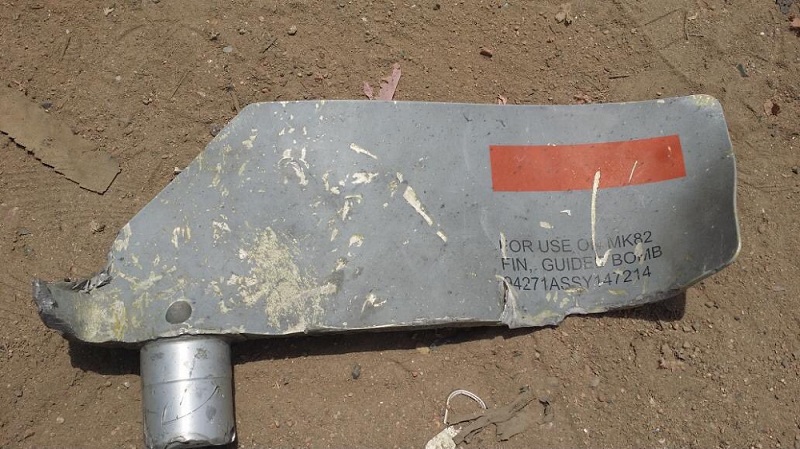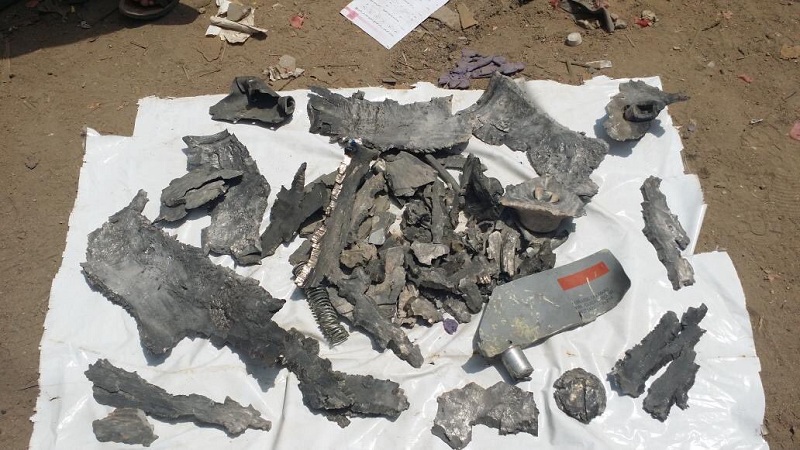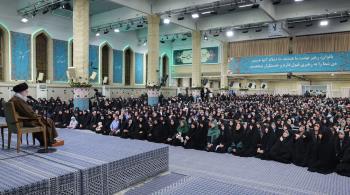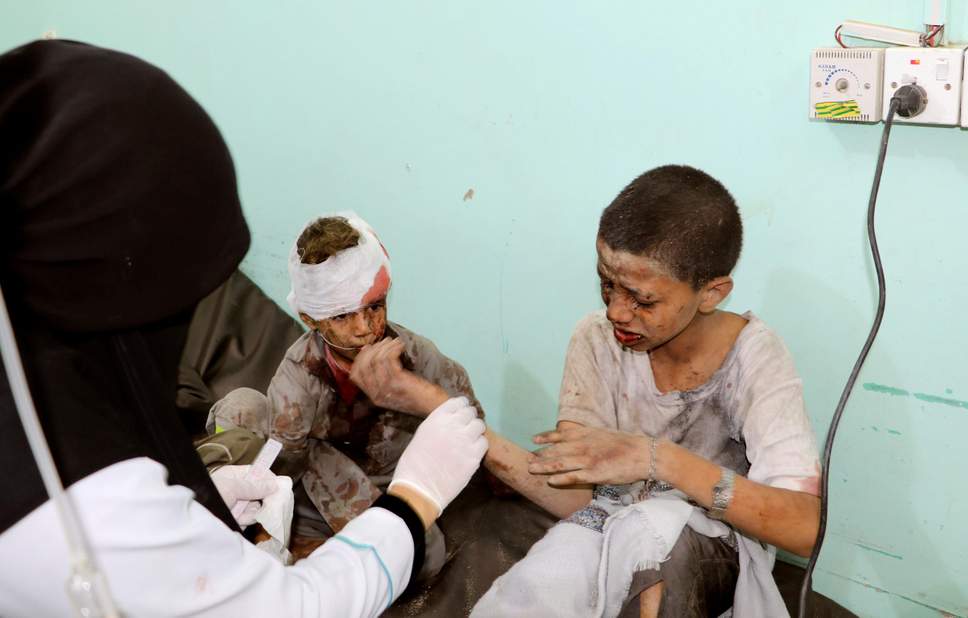Alwaght- The bombs used by Saudi-led coalition to strike a school bus packed with Yemeni schoolchildren was Raytheon Mark 82 general-purpose free-fall bomb, which is made in the US.
A prominent Yemeni journalist who throughout the war has been instrumental in getting images and information out of the country ahead of Western journalists has photographed and examined fragments from one of the exploded missiles found at the site of the US-backed Saudi -led coalition airstrike on a school bus Yemen's Sanaa province which left as many as 51 dead, and 79 others injured — the vast majority of which were children.
The image of the missile fragment, which was among those that scored a direct hit on the school bus traveling through Dahyan market on Thursday, was uploaded by Sanaa-based Hussain Albukhaiti and quickly spread online over the weekend.

While the photo of the fragments has yet to be independently verified, pieces of MK 82 bombs have surfaced repeatedly amid the ongoing Yemen bombing campaign. Ben Norton, an American journalist among the first to track down publicly available government contract information showing the MK-82's likely origins, said of the bomb fragment imagery: "Yemeni journalists found this fragment of the bomb Saudi Arabia dropped on a school bus full of children in Yemen. It's a US-made MK-82 guided bomb, which has been used in previous attacks on Yemeni civilians. The cage code on the bomb is Lockheed Martin's."

The MK-82 made shocking headlines in 2016 when the Saudi-led coalition bombed a community hall in Sanaa during a funeral for Sheikh Ali al-Rawishan, killing more than 140 people and wounding 525 others.
Arms sales to Saudi Arabia have repeatedly been condemned by human rights organizations, who view them as one of the main contributing factors to the skyrocketing death toll in the war-torn country.
More than 15,000 people have been killed in more three years of aggression on already-impoverished Yemen, while the Saudi Arabian blockade continues to contribute has the Arab country on the brink of famine.
Despite repeated calls by NGOs and even US lawmakers to halt arms supplies to the Saudis amid the ongoing conflict, in 2016 and 2017, the Pentagon went on to award Lockheed Martin/General Dynamics key contracts to supply the MK- 500-pound bombs to the Arab coalition.
During the State Department's daily press briefing at the end of last week, spokesperson Heather Nauert was asked point blank by Associated Press reporter Matt Lee, whether the US condemns the attack.
It resulted in a drawn out testy exchange, but Matt Lee laid out the case for direct US complicity in the attack on the bus packed with children: "The Saudis obviously are the ones who conducted this, but they do that with weapons supplied by the U.S., with training supplied by the U.S., and with targeting information, targeting data, supplied by the U.S. How can something like this happen?" he said.
Not only did Nauert refuse to say the US condemned the attack, but wouldn't so much as agree to simply call for an independent investigation into the incident (she called only for a Saudi-led inquiry) which killed at least 29 children and has resulted in the United Nations launching an independent probe.
Previously last week, just before the horrendous attack on the school bus, Nauert had unambiguously stated the Saudi coalition's ongoing airstrikes on Yemen are legitimate and justified.
The Saudis for their part called the incident part of a “legitimate military operation" soon after it happened, ultimately blaming Ansarullah resistance movement who control the region.
In April of 2016, Bruce Riedel, a 30-year CIA officer and senior fellow at the Brookings Institute, told a conference audience, “If the United States and the United Kingdom, tonight, told King Salman [of Saudi Arabia] ‘this war has to end,’ it would end tomorrow. The Royal Saudi Air Force cannot operate without American and British support.”



























